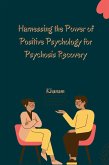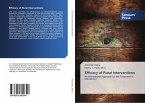This experimental study examined the effects of an eight-week mental training program on athletes' cardiovascular regulation and learning ability of visualization skills for soccer related contests. A total of 56 college soccer players (NCAA Division III) were randomly assigned to either the experimental or control group. The athletes completed measurements of cardiovascular activity (HR and BP) in four stations. The results suggested that the mental training program generated positive effects on athletes in optimizing cardiovascular activity prior to and after contests (lowering the Heart Rate values) and improving juggling skills (59% improvement in touches and 45% enhancement in time). The execution of the exhale phase ( 6 seconds long exhale) through the mouth in order to initiate the Heart Rate Deceleration trends with positive self-talks before the sports specific executions was the crucial psycho-physiological factor for successful performance. This study offers valuable information about the Heart Rate Deceleration trends and Baroreceptor Reflex Mechanism during cardiovascular changes between HR and BP in sport performance.
Bitte wählen Sie Ihr Anliegen aus.
Rechnungen
Retourenschein anfordern
Bestellstatus
Storno








